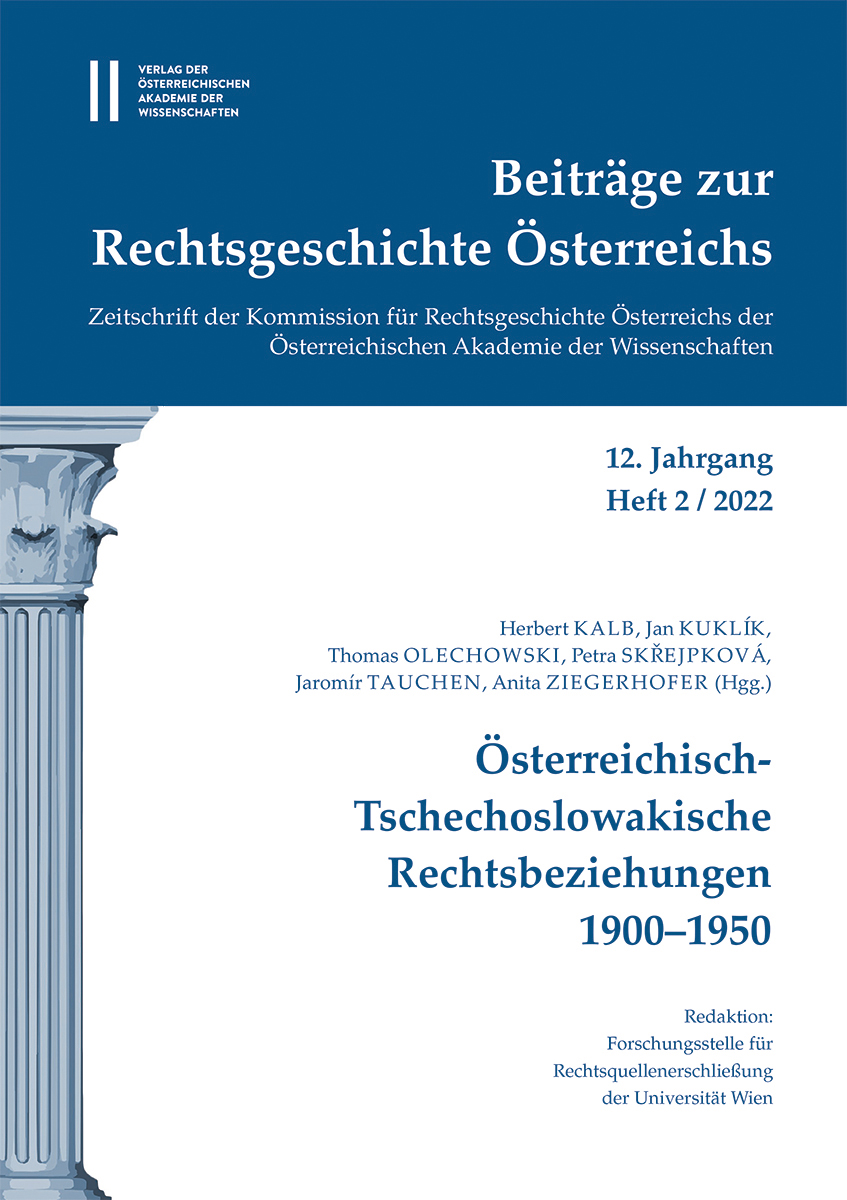
Beiträge zur Rechtsgeschichte Österreichs 12. Jahrgang Heft 2/2022, pp. 330-349, 2022/11/04

Czechoslovakia was founded on October 28th, 1918, when the National Committee adopted the Act on the Establishment of an Independent Czechoslovak State (Act No. 11/1918 Coll.). This law established the reception of the existing Austro‐Hungarian legal system that thus formed the legal system of the new republic (legal dualism). In Bohemia and Moravia (briefly also in the Hlučín Region) the law of Cisleithania, and in the rest of the republic the law of the Lands of the Crown of Saint Stephen, applied. The Czechoslovak government had to solve a number of economic problems. In 1919, the threatening financial crisis was averted by the country’s first minister of finance, Alois Rašín, who initiated a monetary separation that resulted in the adoption of a separate currency. A relatively extensive land reform took place from 1922. The first estates to be confiscated and partitioned were those belonging to the German and Hungarian aristocracy; those who benefited were Czech and Slovak farmers. Also, nostrification took place, the aim of which was to transfer the headquarters and management of businesses to the Czechoslovak Republic. As a result of the take‐over of the legal system, the legal regulation of commercial law was different both in terms of content and language in the two parts of the country. In the legislative area, efforts had been made to unify and at the same time to modernize the legal order across the most important areas of law. In the field of commercial law, the preparation of a new codification was based on the Austrian codification of 1863 and the Hungarian codification of 1875. The preparation was subject to the Ministry of Justice and the Ministry of Unification, which set up expert commissions that developed the Draft Commercial Code. The course of the codification preparation process is further analyzed in the text, and attention is paid to the content of the individual codification proposals. A draft published in 1937 by the Ministry of Justice entitled ʺDraft of the Commercial Codeʺ contained the first (Merchants) and second book (Companies) and had 236 sections. Unlike the then valid Czechoslovak Commercial Act that was based on a mixed system, the Draft of the new Commercial Code was based on a subjective system, on which the German Commercial Code was also based. Unfortunately, this proposal was not adopted by the legislator and remained only in the preparatory phase. One of the reasons was the wait for the adoption of the Draft Civil Code, which did not occur as a result of the German occupation. In the interwar period, therefore, some partial norms were adopted, which unified important areas of commercial law. This included Act No. 259/1924 Coll. (Trade Licensing Act for the territory of Slovakia and Carpathian Ruthenia) on the basis of which the regulations of the former Austrian Trade Licensing Code were used with appropriate adaptation to the conditions in this territory. The other acts were the Bill of Exchange Act (Act No. 1/1928 Coll.), Act No. 145/1934 Coll. on insurance policy, and Act No. 147/1934 Coll. on securing the claims of policyholders in private insurance and on state supervision over private insurance companies. Another important law concerning state intervention in the economic area was the Act against Unfair Competition in 1927 (Act No. 111/1927 Coll.). The complex conditions of the receding economic crisis had created the need for bankruptcy legislation (Act. No. 64/1931 Coll.) and an amendment to procedural law (Act No. 1/1933 Coll.).
Keywords: bankruptcy – Commercial law – currency – Draft of the Commercial Code – land reform – unification of law